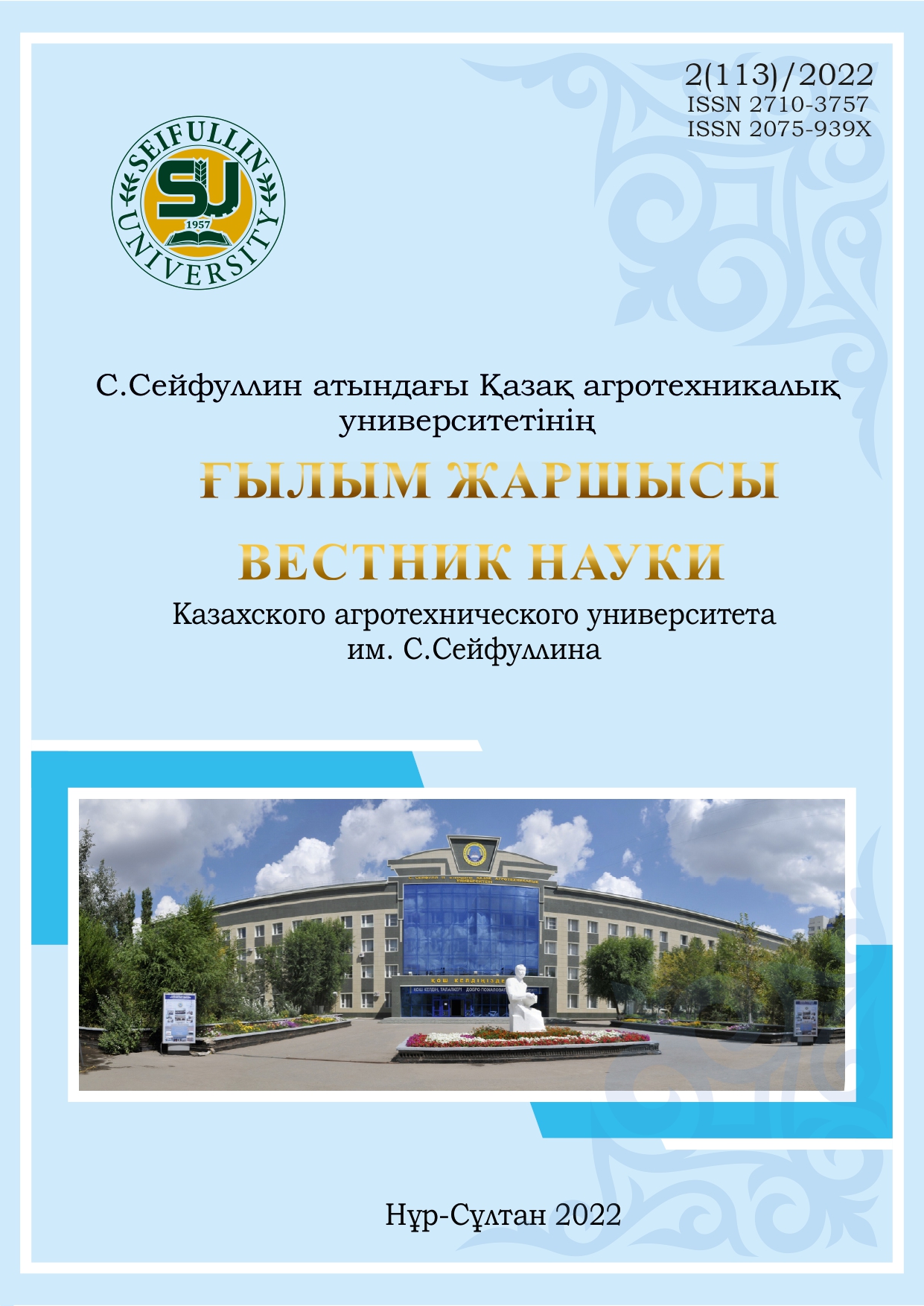THE NEW TREATMENT REGIMEN OF CALVES’ DIARRHEA CAUSED BY MIXED INVASION OF EIMERIA AND GIARDIA
DOI:
https://doi.org/10.51452/kazatu.2022.2(113).1029Keywords:
Calves; Eimeria spp.; Giardia spp.; Metronidazole; Vetom-1; intense efficiency; extensive efficiency.Abstract
The article described a farm experiment provided in July-August of 2019 on 32 diarrheal calves of two and three-month-old, spontaneously infected with Eimeria and Giardia. The animals were selected by coproscopic methods and divided into four groups with eight individuals in each. The first control group calves were untreated. The second group animals treated orally by Metronidazole-25% (100 mg/kg), the third group – by probiotic Vetom-1 (50 mg/kg) for seven days. The fourth group calves were fed by a new treatment regimen with Metronidazole-25% at the first three days, and additionally with Vetom-1 at the next four days in above dosage. The efficacy determined at the 10th day after treatment according to shedding cysts’ level and weight gain per day. Diarrhea symptoms assessed on a 4-score scale before and after the treatment. As a result, during the experiment the control animals’ parasite shedding level and diarrhea signs did not changed; the weight gain was minimal compared to other groups (0.66±0.26 kg). In the second group intensity efficiency (IE) against Eimeria was 90.9±9.3% and extensive efficiency (EE) – 75%, while against Giardia – 91.3±4.8% and 37.5%, respectively. The weight gain during the experiment was approximately same with the control group, and diarrhea remained at 2-3 scores. In the third group the infection intensity remained at the same level, body weight was higher (0.78±0.29) compared with two previous groups, and diarrhea decreased to 1-2 scores. In the fourth group, IE against Eimeria and Giardia was 99.9±0.2% and 98.9±1.5%, respectively, and EE against both parasites was 87.5%; weight gain was higher than in other groups and reached 0.89±0.06 kg, and there were no diarrhea signs. Thus, the new treatment regimen, including the combined use of Metronidazole and Vetom-1, showed high efficiency against calves’ diarrhea caused by mixed invasion of Eimeria and Giardia.

